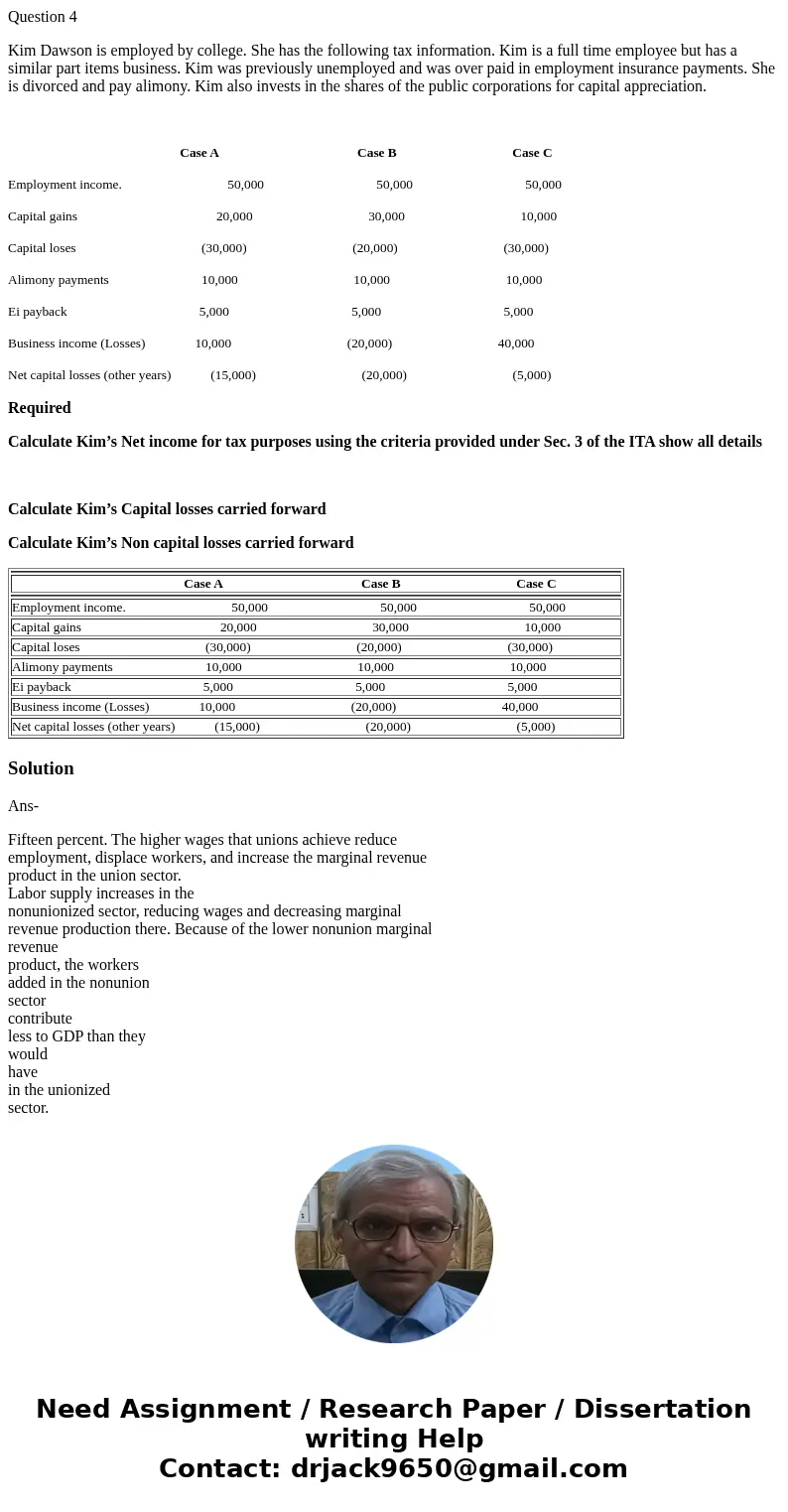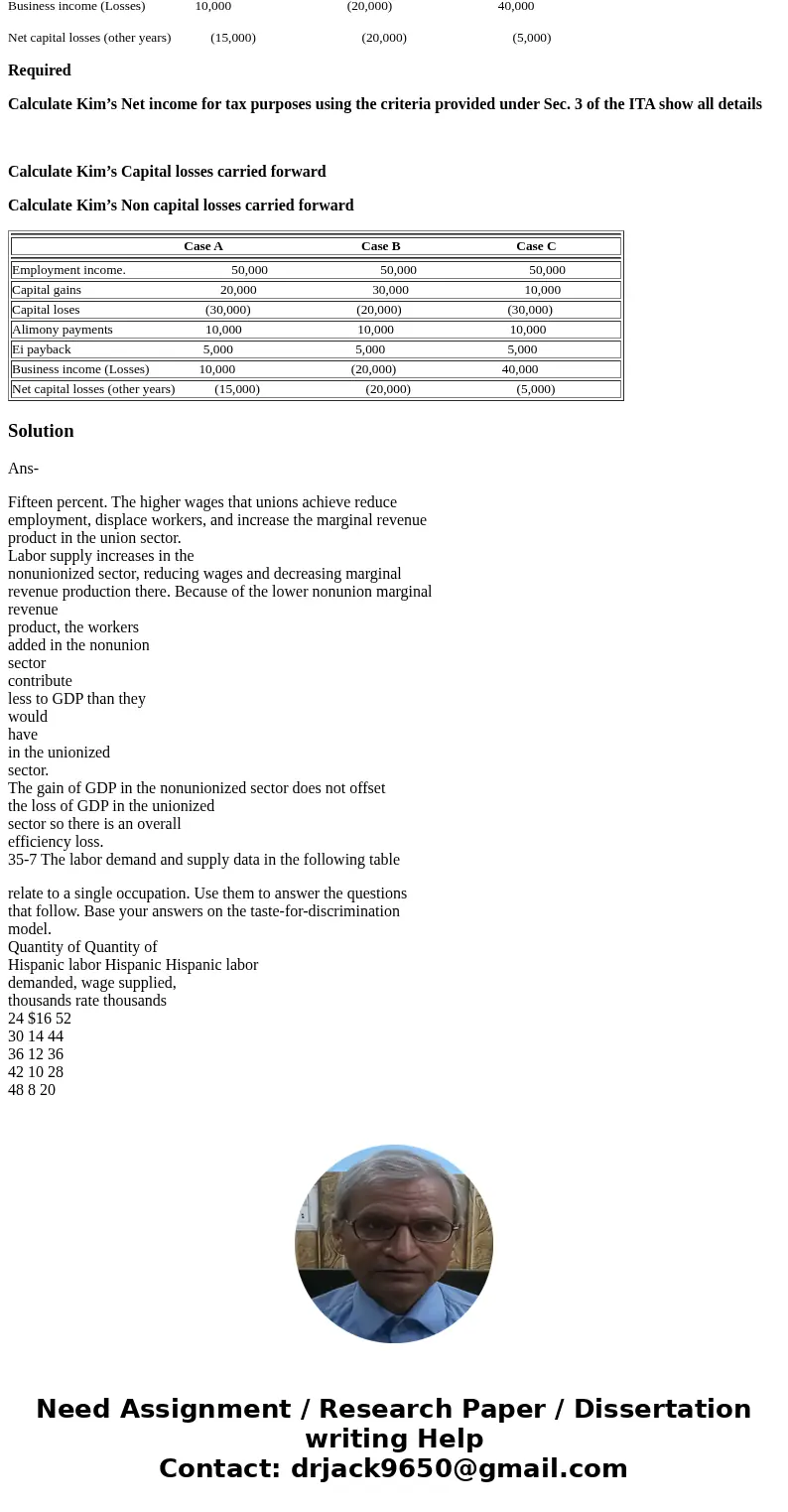Question 4 Kim Dawson is employed by college She has the fol
Question 4
Kim Dawson is employed by college. She has the following tax information. Kim is a full time employee but has a similar part items business. Kim was previously unemployed and was over paid in employment insurance payments. She is divorced and pay alimony. Kim also invests in the shares of the public corporations for capital appreciation.
Case A Case B Case C
Employment income. 50,000 50,000 50,000
Capital gains 20,000 30,000 10,000
Capital loses (30,000) (20,000) (30,000)
Alimony payments 10,000 10,000 10,000
Ei payback 5,000 5,000 5,000
Business income (Losses) 10,000 (20,000) 40,000
Net capital losses (other years) (15,000) (20,000) (5,000)
Required
Calculate Kim’s Net income for tax purposes using the criteria provided under Sec. 3 of the ITA show all details
Calculate Kim’s Capital losses carried forward
Calculate Kim’s Non capital losses carried forward
| Case A Case B Case C |
| Employment income. 50,000 50,000 50,000 |
| Capital gains 20,000 30,000 10,000 |
| Capital loses (30,000) (20,000) (30,000) |
| Alimony payments 10,000 10,000 10,000 |
| Ei payback 5,000 5,000 5,000 |
| Business income (Losses) 10,000 (20,000) 40,000 |
| Net capital losses (other years) (15,000) (20,000) (5,000) |
Solution
Ans-
Fifteen percent. The higher wages that unions achieve reduce
employment, displace workers, and increase the marginal revenue
product in the union sector.
Labor supply increases in the
nonunionized sector, reducing wages and decreasing marginal
revenue production there. Because of the lower nonunion marginal
revenue
product, the workers
added in the nonunion
sector
contribute
less to GDP than they
would
have
in the unionized
sector.
The gain of GDP in the nonunionized sector does not offset
the loss of GDP in the unionized
sector so there is an overall
efficiency loss.
35-7 The labor demand and supply data in the following table
relate to a single occupation. Use them to answer the questions
that follow. Base your answers on the taste-for-discrimination
model.
Quantity of Quantity of
Hispanic labor Hispanic Hispanic labor
demanded, wage supplied,
thousands rate thousands
24 $16 52
30 14 44
36 12 36
42 10 28
48 8 20


 Homework Sourse
Homework Sourse